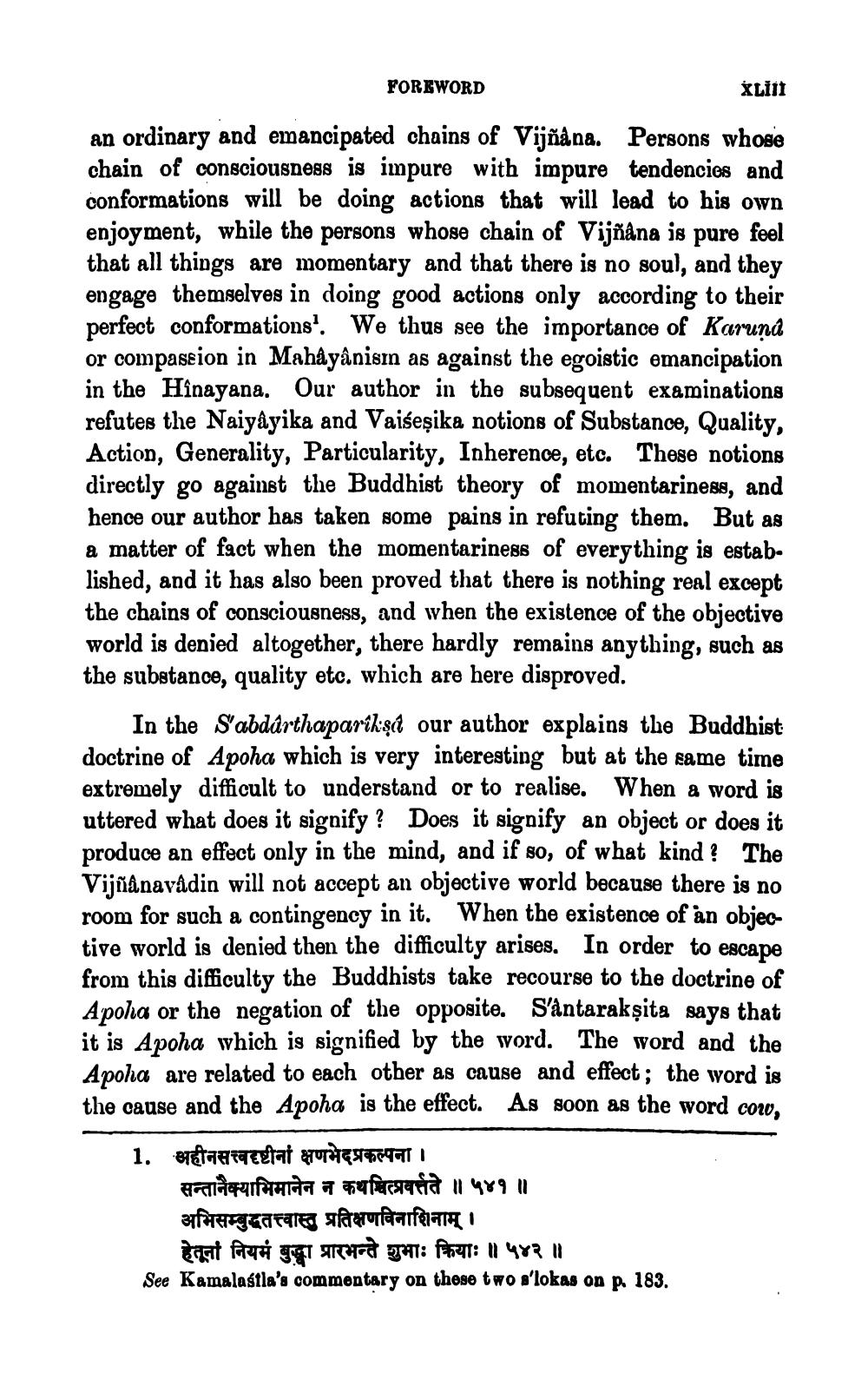________________
FOREWORD
an ordinary and emancipated chains of Vijñana. Persons whose chain of consciousness is impure with impure tendencies and conformations will be doing actions that will lead to his own enjoyment, while the persons whose chain of Vijñâna is pure feel that all things are momentary and that there is no soul, and they engage themselves in doing good actions only according to their perfect conformations'. We thus see the importance of Karuna or compassion in Mahâyânism as against the egoistic emancipation in the Hinayana. Our author in the subsequent examinations refutes the Naiyâyika and Vaiseşika notions of Substance, Quality, Action, Generality, Particularity, Inherence, etc. These notions directly go against the Buddhist theory of momentariness, and hence our author has taken some pains in refuting them. But as a matter of fact when the momentariness of everything is established, and it has also been proved that there is nothing real except the chains of consciousness, and when the existence of the objective world is denied altogether, there hardly remains anything, such as the substance, quality etc. which are here disproved.
In the S'abdúrthapariksa our author explains the Buddhist doctrine of Apoha which is very interesting but at the same time extremely difficult to understand or to realise. When a word is uttered what does it signify? Does it signify an object or does it produce an effect only in the mind, and if so, of what kind? The Vijñânavâdin will not accept an objective world because there is no room for such a contingency in it. When the existence of an objective world is denied then the difficulty arises. In order to escape from this difficulty the Buddhists take recourse to the doctrine of Apoha or the negation of the opposite. S'ântarakṣita says that it is Apoha which is signified by the word. The word and the Apoha are related to each other as cause and effect; the word is the cause and the Apoha is the effect. As soon as the word cow,
1. अहीनसत्त्वदृष्टीनां क्षणभेदप्रकल्पना ।
XLIII
सन्तानैक्याभिमानेन न कथञ्चित्प्रवर्त्तते ॥ ५४१ ॥ अभिसम्बुद्धतत्त्वास्तु प्रतिक्षणविनाशिनाम् ।
हेतूनां नियमं बुद्धा प्रारभन्ते शुभाः क्रियाः ॥ ५४२ ॥
See Kamalasila's commentary on these two s'lokas on p. 183.




